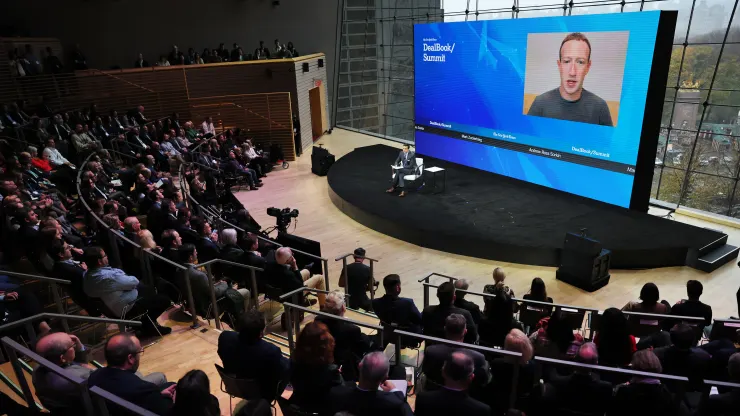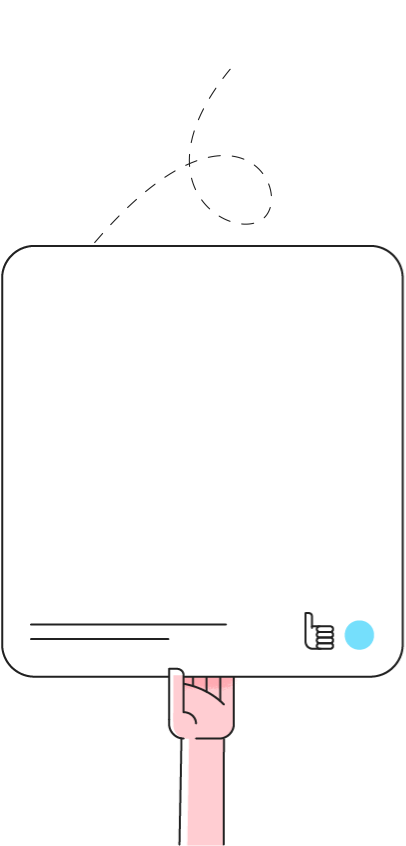Table of Contents
On September 5th, Meta decided to deprecate its Facebook News in Europe. Learn more about the decision here! This decision, slated to take effect in early December, marks a strategic shift in Meta’s approach to news content within these European nations.
Meta’s rationale behind this change lies in its commitment to align its investments with the preferences and behaviors of its vast user base. As the digital realm continues evolving, Meta acknowledges that user priorities are also evolving. Users increasingly turn to the platform for social connections rather than seeking news and political content on Facebook.
With news content making up less than 3% of what users encounter in their Facebook feeds globally, Meta’s decision to move away from Facebook News in Europe underscores a desire to cater to the majority’s preferences.
Check out how Threads, Meta’s newest platform, can improve its retention rates here!
What is Meta?
If you don’t know Meta, you for sure know Facebook. Meta is a prominent technology conglomerate formerly known as Facebook, Inc. It is the parent company for various social media and technology platforms, including Facebook, Instagram, WhatsApp, and Oculus VR. Meta primarily aims to connect people globally through its diverse digital services and products.
The company is at the forefront of innovations in social networking, virtual reality, and augmented reality technologies, shaping how people communicate, share, and experience digital content in the modern era. With a strong focus on user engagement, Meta continues to be a leading force in the digital world, driving the development of new technologies and experiences for its massive user base.
Take a peek at this blog to learn more about how brands can maximize their Threads engagement!
Facebook News Deprecation
In a bold and strategic move, Meta has recently announced its decision to deprecate Facebook News in Europe, specifically the United Kingdom, France, and Germany. This development has sparked discussions and curiosity about the motivations behind such a decision and its implications for Meta and its users in these regions.
Facebook News, a dedicated tab within the Facebook platform designed for news content, will see its final days in early December in these European nations. This significant decision doesn’t signify the end of news consumption on Facebook; rather, it signals a shift in the way Meta wishes to present and prioritize content for its users.
The crux lies in Meta’s efforts to realign its investments with the products and services that resonate most with its user base. As a tech giant that continuously adapts to changing trends, Meta recognizes the evolving nature of user preferences. People no longer primarily turn to Facebook for news and political content; they come to the platform seeking connections, discovering new interests, and engaging with short-form video content.

To put this decision into perspective, news content comprises a mere fraction of what users encounter in their Facebook feeds worldwide, accounting for less than 3%. This relatively small footprint within the Facebook experience for most users has led Meta to reconsider its investment in Facebook News in Europe.
Meta’s decision to deprecate Facebook News in Europe is a strategic maneuver aimed at directing their time and resources toward elements users indicate they want to see more of on the platform. Short-form video content and the core social connections Facebook facilitates have emerged, signaling Meta’s commitment to evolving with user needs and preferences.
In June, Meta introduced their “Voicebox” AI tool. Click this link to read up on their innovative features and technology!
The Reasons Behind the Decision
Meta’s decision to deprecate Facebook News in the UK, France, and Germany stems from several key motivations reflecting the digital landscape’s evolving dynamics and user behavior. However, earlier in the year, the European Union fined Meta $1.3 billion and ordered the company to stop transferring users’ data, so the growing tension with Facebook in Europe could have contributed to Meta’s decision.
Shifting User Preferences
Meta acknowledges that the primary reasons users visit the platform have evolved. Rather than seeking out news and political content, users increasingly turn to Facebook for social interactions, exploring niche interests, and engaging with the ever-popular short-form video content. This shift in user behavior has prompted Meta to reevaluate its content priorities.
User Engagement and Prioritization
As a tech giant focused on delivering value to its user base, Meta aims to allocate its resources and investments where they matter most. By deprecating Facebook News in Europe, Meta can enhance user engagement and cater to content that aligns with the majority’s preferences.
Data-Driven Decision Making
Meta’s decision-making process is highly data-driven. The company closely monitors user interactions and content consumption patterns. The fact that news content constitutes less than 3% of what users see in their Facebook feeds worldwide reflects a data-backed rationale for this shift.
Adaptation to Changing Markets
The digital landscape is dynamic, and Meta’s adaptability is a cornerstone of its success. By making this move in the European market, Meta demonstrates its readiness to respond to evolving regional dynamics and user expectations.
Meta’s decision to deprecate Facebook News in Europe underscores its commitment to aligning its platform with its user base’s evolving needs and preferences. The company’s focus on user engagement, shifting user behaviors, and data-informed decision-making all contribute to the rationale behind this strategic shift. This decision paves the way for Meta to continue innovating and delivering content that resonates with their dynamic user base.
In the latest YouTube news, the platform has announced the launch of their new Shorts creation tools. Here’s everything you need to know about the new features!
Impact on News Publishers
Meta’s decision to deprecate Facebook News in Europe holds significant implications for news publishers in this region. While it signifies a notable change in Meta’s content strategy, it also alters the landscape for news content dissemination on the platform.

News publishers will continue to have a presence on Facebook despite removing Facebook News in Europe. They can share news articles, updates, and links through their Facebook accounts and Pages, ensuring that users can still encounter news content within their feeds as they currently do. Meta has committed to honoring existing agreements with news publishers in these European countries until they expire. This commitment provides some stability for publishers during this period of transition.
Publishers are encouraged to diversify their content strategies. They are not confined to the Facebook News tab for distributing their content. Instead, they can explore other features like Reels and utilize Meta’s advertising system to reach a wider audience and direct traffic to their websites, where they retain the entirety of the revenue generated from outbound links on Facebook.
Looking forward, Meta’s decision suggests a shift in its approach to news content in Europe. While existing agreements will be upheld, the company has indicated it does not plan to enter new commercial deals focused on news content within Facebook News in Europe. This signals a broader change in Meta’s content strategy and regional partnerships.
Twitter is facing some backlash for delaying their ad revenue payouts. Read about what this means for users and the future of the app here!
Concluding Thoughts on the Facebook News in Europe
Meta’s decision to phase out Facebook News in Europe marks a strategic shift in the company’s approach to content delivery. This move reflects Meta’s commitment to adapt to evolving user preferences and the changing digital age. While removing the Facebook News tab may alter how news content is presented, it does not signify the end of news consumption on the platform.
News publishers will continue to have a presence on Facebook, with the opportunity to engage with their audiences through various means. Meta’s pledge to honor existing agreements offers stability during this transitional phase, and publishers are encouraged to explore alternative avenues for content distribution.
As Meta focuses on short-form video and user engagement, this decision underscores the company’s dedication to delivering content that aligns with its user base’s evolving needs and preferences.























